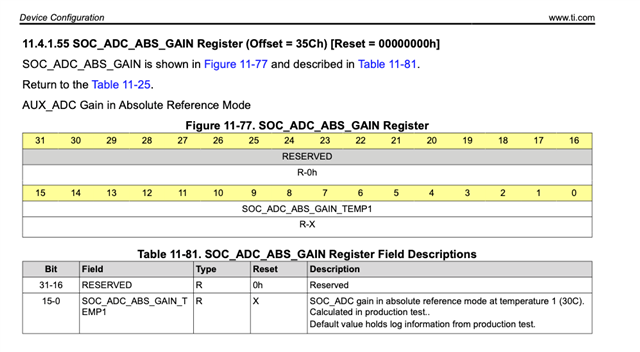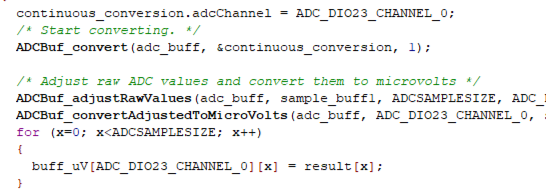Customer have CC2652R7 ADC measuring across a 1V range for vehicle voltage, 12/24 volt operation, and the voltage ratio to measure is 30.4:1, across 1V reference. On one device, the see that this conversion of slope of 30.4:1 works fine, and there is 0 offset.

At 12 volts, it look great on all three points of measurement, and tracks well at 10 and 20V settings.
However, measurements from 3 other boards measure 12.4, 11.1, and 10.9V with the same FW. The slope looks good, but there is clearly an offset.
They are looking at the CC2652 documentation, at some compensation registers. Do we have to use these values to compensate? And why are then 0 at reset?

They are using the below API’s.

Any suggestions as to why I am seeing this offset and how to compensate?

